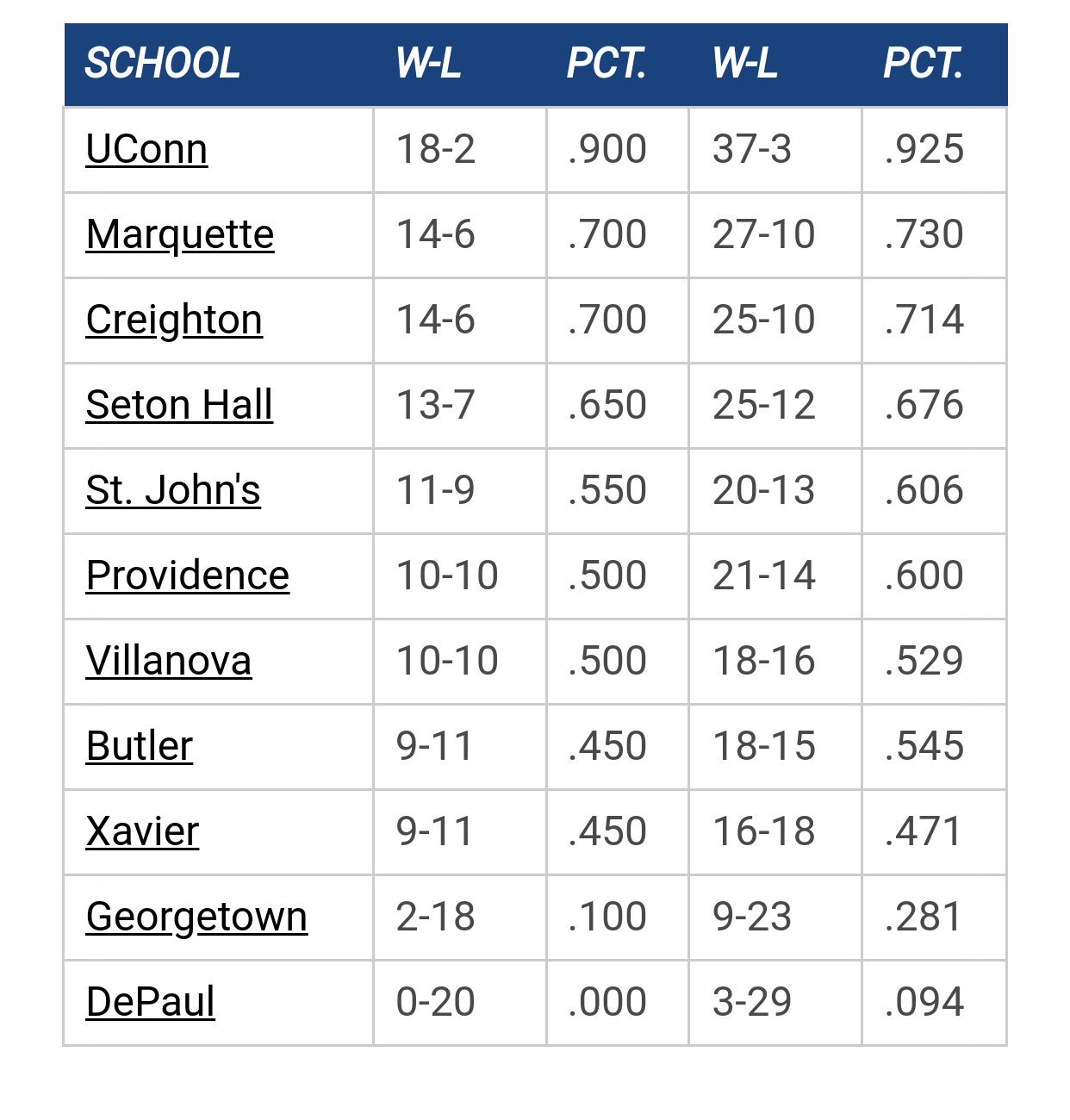- Welcome to MUScoop.
Transfers in/out 2025-2026 by Billy Hoyle
[Today at 09:17:40 PM]
2025-26 College Hoops Thread by Billy Hoyle
[Today at 09:15:00 PM]
2025-26 Big East Conference TV Schedule by Mr. Nielsen
[Today at 07:26:40 PM]
2026 Transfer Portal Wishlist by muwarrior69
[Today at 04:35:11 PM]
Shaka Smart 02/18/2026 by JTJ3
[Today at 04:33:39 PM]
[Cracketology] Top-16 Preview by brewcity77
[Today at 03:49:32 PM]
Analysis of the Move by Newsdreams
[Today at 03:24:17 PM]
[Today at 09:17:40 PM]
2025-26 College Hoops Thread by Billy Hoyle
[Today at 09:15:00 PM]
2025-26 Big East Conference TV Schedule by Mr. Nielsen
[Today at 07:26:40 PM]
2026 Transfer Portal Wishlist by muwarrior69
[Today at 04:35:11 PM]
Shaka Smart 02/18/2026 by JTJ3
[Today at 04:33:39 PM]
[Cracketology] Top-16 Preview by brewcity77
[Today at 03:49:32 PM]
Analysis of the Move by Newsdreams
[Today at 03:24:17 PM]
The absolute only thing required for this FREE registration is a valid e-mail address. We keep all your information confidential and will NEVER give or sell it to anyone else.
Login to get rid of this box (and ads) , or signup NOW!
Georgetown Date/Time: Feb 24, 2026, 6:00pm TV: NBC SN Schedule for 2025-26 |
||||||
User actions


